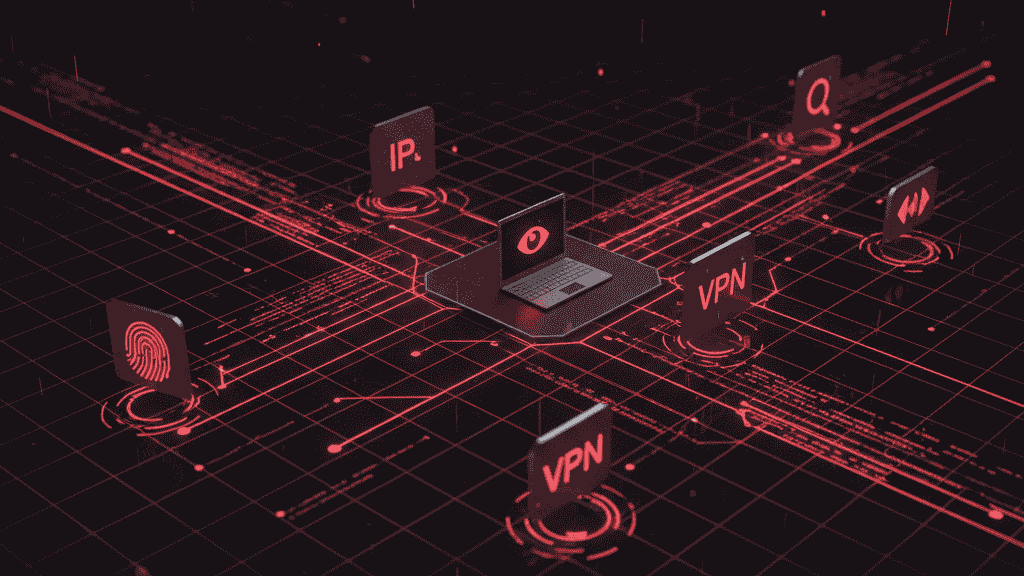Shocking: 7 North Korean IT Workers VPNs Tactics That Will Destroy Your Company Security in 2025
When you searched for ‘North Korean IT workers VPNs’ at 2 AM, you weren’t looking for outdated advice—you needed current, actionable insights. Meet Sarah, a tech startup CEO who just discovered why this invisible threat matters more than ever in 2025…
The Bottom Line: What 2025 Data Reveals About North Korean IT Workers VPNs
The numbers are staggering: more than 10,000 North Korean IT professionals have infiltrated global technology marketplaces using sophisticated VPN networks and laptop farms, according to recent cybersecurity reports. These operatives generated at least $5 million in documented revenue through just one network disrupted in 2025, with UN estimates placing annual revenue between $250 million to $600 million. South Korea’s National Intelligence Service reports the cyber workforce grew from 6,800 in 2022 to 8,400 in 2024—and they’re targeting companies just like yours.
The Avoidance Path: When companies ignored North Korean IT workers VPNs warnings, they faced data breaches, intellectual property theft, and unwittingly funded weapons programs. The Justice Department’s July 2025 coordinated nationwide operation searched 29 suspected laptop farms across 16 states, seizing 29 financial accounts and 21 fake websites. These weren’t isolated incidents—dozens of Fortune 100 companies unknowingly hired these operatives.
How North Korean IT Workers VPNs Actually Impact Your World in 2025
You’re hiring remote developers, designers, and IT specialists. It’s normal. It’s 2025. But here’s what’s happening behind the scenes: North Korean operatives are using AI-enhanced photos, stolen identities, and China-based VPN services like Astrill VPN to appear completely legitimate. They request company laptops shipped to US-based facilitators who run “laptop farms”—physical locations housing dozens of corporate devices controlled remotely from North Korea or China.
Microsoft Threat Intelligence discovered a treasure trove repository in October 2024 containing AI-enhanced images, fabricated résumés, email accounts, and suspicious virtual private servers used by these operations. The FBI issued public service announcements in both May 2024 and January 2025 warning that these workers have committed data extortion and exfiltrated proprietary and sensitive data from US companies.
Google’s Threat Intelligence expert Michael Barnhart, who’s tracked North Korea for decades, said it plainly: “They are wildly successful.”
Your 7-Step Action Plan: Detecting North Korean IT Workers VPNs
1. North Korean IT Workers VPNs Detection Foundation: Monitor IP Address Anomalies
Scrutinize login patterns for VPN usage typical of North Korean operations. Use tools like Spur Intelligence Corporation’s free service at spur.us/app/context to identify suspicious VPN connections originating from China or other high-risk locations.
2. Laptop Farm Identification Implementation: Track Shipping Addresses
Red flag any requests to ship corporate laptops to addresses different from the employee’s stated location. US authorities discovered facilitators operating laptop farms received hardware on behalf of North Korean workers, creating centralized access points.
3. Remote Access Tool Monitoring: Detect Multiple Management Tools
Watch for unusual combinations of remote administration tools including LogMeIn, GoToMeeting, Chrome Remote Desktop, AnyDesk, and TeamViewer. Mandiant reports laptop farms use “keyboard video mouse” devices to control multiple machines simultaneously.
4. Identity Verification Optimization: Request Laptop Serial Number Verification
During IT onboarding, ask employees to verify their laptop serial number via video call. This simple step can expose workers who don’t have physical access to the device they claim to be using.
5. Resume Analysis Enhancement: Check for Suspicious Overlaps
Google’s research revealed that North Korean operatives’ résumés exhibit significant overlap with publicly available résumés or are heavily reused across multiple personas. Cross-reference candidate profiles across platforms.
6. Behavioral Pattern Recognition: Monitor Mouse Activity and Work Patterns
Look for mouse jiggling software usage—a tool that keeps computers appearing active. Also watch for employees who are consistently unavailable during US business hours but extremely responsive during Asian time zones.
7. Financial Transaction Tracking: Follow the Money Trail
The US government seized over $7.74 million in June 2025 tied to illegal employment schemes. Monitor if employees request unusual payment arrangements, cryptocurrency payments, or route compensation through third-party services.

Frequently Asked Questions About North Korean IT Workers VPNs
How do North Korean IT workers VPNs bypass modern security in 2025?
They exploit the remote work revolution. North Korean operatives use stolen American identities, AI-generated profile photos, and sophisticated VPN services that function well in China. They submit legitimate-looking résumés, pass technical interviews (often genuinely skilled developers), and once hired, request company laptops shipped to US accomplices running laptop farms. From there, they remotely access corporate networks while masking their true location through layered VPN connections.
What are laptop farms and how do North Korean IT workers use them?
Laptop farms are physical locations in the United States where accomplices collect corporate hardware sent to North Korean IT workers. These facilitators maintain dozens of devices that can be controlled remotely from North Korea or China. According to court documents from July 2025, facilitators set up shell companies with websites and financial accounts to legitimize operations. The workers then remotely access these laptops to perform their jobs while appearing to be based in America.
Sarah’s Two-Path Discovery: The 7 Critical Decisions
The Advantage Path: When Sarah’s startup implemented North Korean IT workers VPNs detection protocols…
- VPN Monitoring Systems: She deployed IP analysis tools that flagged a developer using Astrill VPN—the same service North Korean operatives prefer. Investigation revealed fabricated credentials before any data breach occurred.
- Laptop Farm Prevention: By requiring serial number verification via video during onboarding, her team identified an applicant who couldn’t produce the device supposedly sent to their home address. They avoided hiring a potential operative.
- Multi-Layer Identity Verification: Sarah’s HR team started cross-referencing LinkedIn profiles, GitHub contributions, and professional references. They discovered one candidate’s résumé matched a publicly available template word-for-word—a red flag Google’s research highlighted as typical of North Korean operations.
The Reality: Sarah protected her company’s intellectual property, avoided funding weapons programs, and prevented potential data extortion. Her proactive approach saved not just money but her company’s reputation.
Why are companies still hiring North Korean IT workers despite warnings?
The schemes are sophisticated and evolving. These workers are often genuinely skilled in software development, mobile applications, and IT services—making them attractive hires. The remote work boom created perfect cover. Companies receive quality work, deadlines are met, and nothing initially appears suspicious. By the time red flags emerge—unusual VPN patterns, shipping address discrepancies, or data exfiltration attempts—significant damage may already be done. The Justice Department’s January 2025 indictment identified operations running successfully from 2018 to 2024, demonstrating how long these schemes can operate undetected.
What happens to the money North Korean IT workers earn?
The North Korean government withholds up to 90 percent of wages earned by overseas workers, according to the US Department of Treasury. These funds directly support the regime’s weapons of mass destruction programs. While the individual worker might earn a small fraction, the Kim regime converts most earnings into revenue for nuclear and missile development. It’s structured like organized crime—investigators compare it to the mafia. UN estimates place annual IT worker revenue between $250 million to $600 million, separate from the $3 billion stolen through cryptocurrency theft operations by the same cyber divisions.
The Verdict: Why North Korean IT Workers VPNs Matter More in 2025
Sarah learned what every business owner must understand: the remote IT worker threat isn’t theoretical—it’s active, sophisticated, and growing. In 2025, with 8,400 operatives working globally and AI making their deception more convincing, the question isn’t whether your industry is targeted. It’s whether your security protocols can detect them.
The FBI, Microsoft, Google, and the Justice Department have all issued warnings throughout 2024 and 2025. The laptop farm operations span 16 states. Fortune 100 companies—with massive security budgets—have been compromised. If it’s happening to them, it can happen to you.
Your next remote hire could be legitimate talent or a North Korean operative using VPNs and laptop farms to bypass your verification. The difference between Sarah’s advantage path and the avoidance path is simple: vigilance, verification, and implementing the seven-step detection framework outlined above.
Don’t become another statistic funding weapons programs while losing your proprietary data. Start monitoring VPN patterns today. Verify physical device locations. Cross-reference résumés. The technology to detect North Korean IT workers VPNs exists—you just need to deploy it.
Essential Resource: For comprehensive technical indicators and mitigation strategies, check out Palo Alto Networks Unit 42’s research report “Global Companies Are Unknowingly Paying North Koreans: Here’s How to Catch Them” at https://unit42.paloaltonetworks.com/north-korean-it-workers/
To read more news about technology click here
To more about cybersecurity click here




